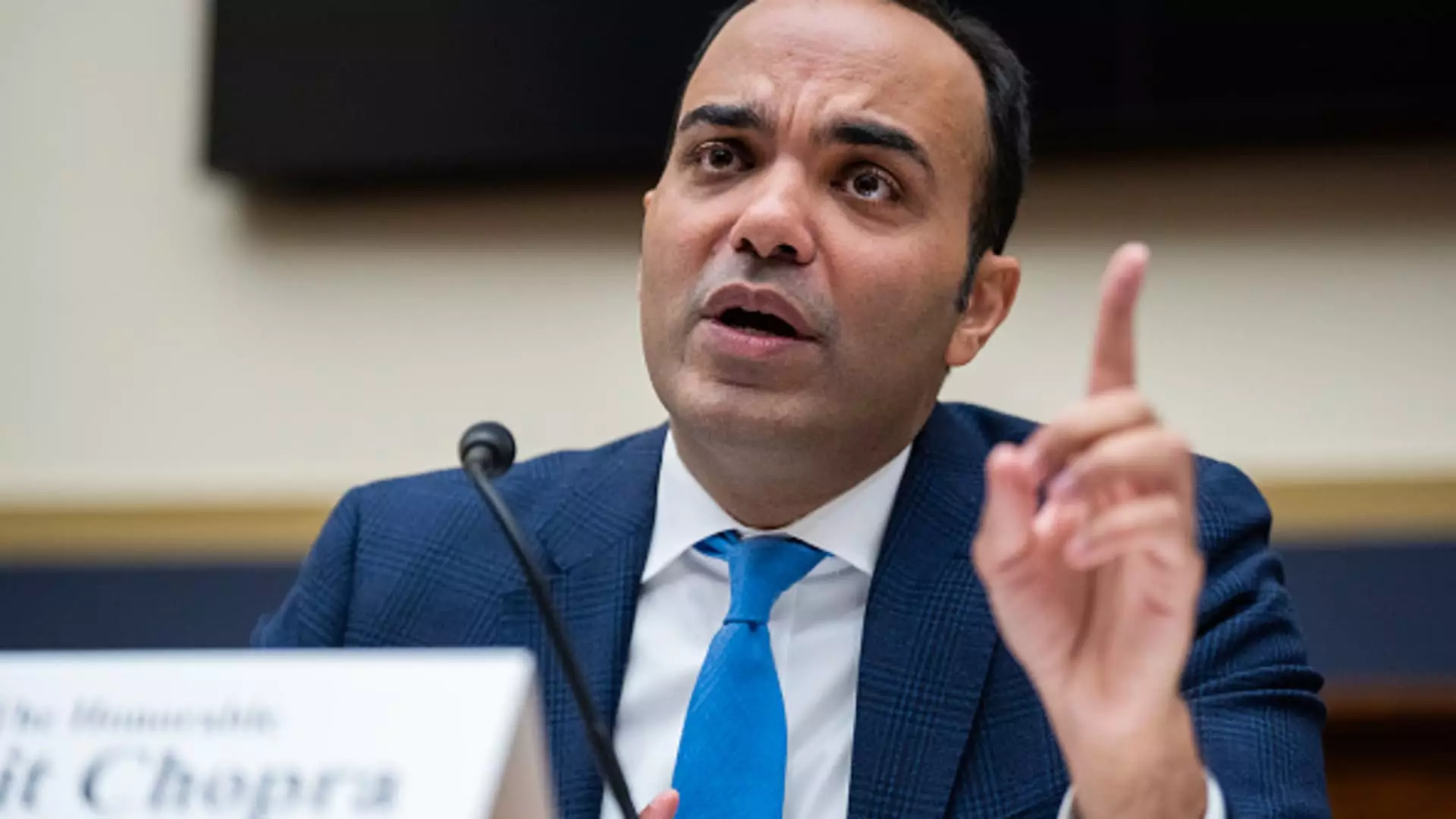The Consumer Financial Protection Bureau (CFPB) has taken a significant step toward changing the landscape of overdraft fees, a practice that has long been a point of contention for many Americans. On a recent Thursday, the agency released the final version of a rule that aims to curb the exorbitant fees that banks impose when consumers overdraw their accounts. According to the CFPB, the new regulation could save consumers a staggering $5 billion annually.
Under the newly introduced rule, banks will have the flexibility to impose a maximum overdraft fee of just $5, sharply contrasting with the average existing fee that hovers around $35 per transaction. This move highlights the CFPB’s intention to reduce the financial burden on consumers who often find themselves trapped in a cycle of debt due to these excessive charges. Additionally, banks can opt to charge fees that align strictly with their operational costs or disclose the interest rate for any overdraft loans issued. This decision reflects the CFPB’s mission to enhance transparency and accountability within the banking industry.
Historically, overdraft fees have been a goldmine for banks, with cumulative revenues amounting to a staggering $280 billion since the year 2000. However, recent trends indicate a downward trajectory for these revenues, as both larger banks, such as JPMorgan Chase and Bank of America, shift their policies to lower fees or curtail the circumstances under which overdraft fees occur. Some institutions have even eliminated these fees entirely, reflecting a growing awareness of their detrimental impact on consumers and the rise of alternatives that offer clients more flexible banking options.
The CFPB’s recent rule applies specifically to banks and credit unions with a minimum of $10 billion in assets. Its implementation is scheduled for October 1, 2025. However, this timeline is not without uncertainty; resistance from banking groups has been palpable since the announcement. The sector has historically pushed back against regulatory changes, effectively stalling proposals aimed at curtailing excessive fees. A notable example is the CFPB’s previous attempt to cap credit card late fees, which is currently entangled in legal disputes, delaying its application.
Despite the potential consumer benefits, the introduction of the overdraft rule faces considerable opposition from major banking associations. They argue that the new limitations may inadvertently restrict access to crucial financial services, pushing consumers towards potentially more harmful alternatives such as payday loans. The Consumer Bankers Association has publicly stated that they are “exploring all options” to contest the rule, indicating ongoing resistance from the financial sector. Compounding these challenges is the anticipated leadership change at the CFPB following the recent elections, which could lead to further modifications or repeal of the proposed changes, undermining the progress made under the Biden administration.
As the financial landscape evolves, the stakes are high for consumers who have long suffered under the weight of overdraft fees. The new regulation from the CFPB presents an opportunity to alleviate some of the financial strain on American households. If successful, this rule could mark a pivotal shift in banking practices, encouraging transparency and fairness in financial transactions. However, its effectiveness will ultimately depend on how well it withstands industry pushback and the potential changes in leadership that could redirect the CFPB’s priorities.
While the CFPB’s rule on overdraft fees is a step toward protecting consumers from exploitation, its future remains precarious. The interplay between regulatory oversight and banking interests will be critical in determining whether this initiative leads to meaningful change or becomes another casualty of lobbying efforts. As the implementation date approaches, the dialogue surrounding financial regulations and consumer rights will continue to play a crucial role in shaping the future of banking in America.

